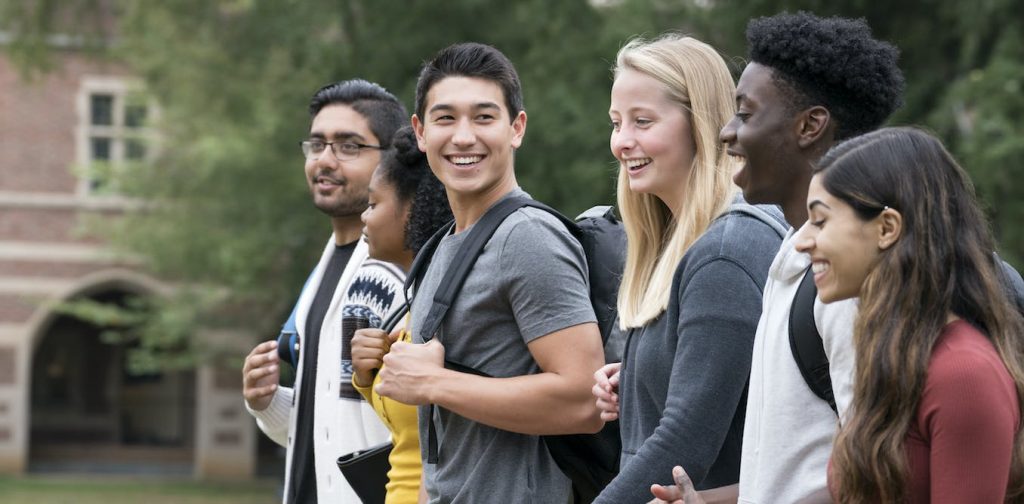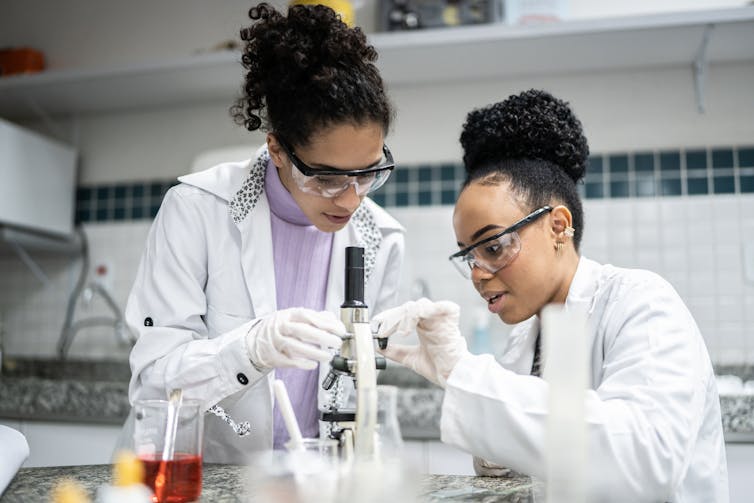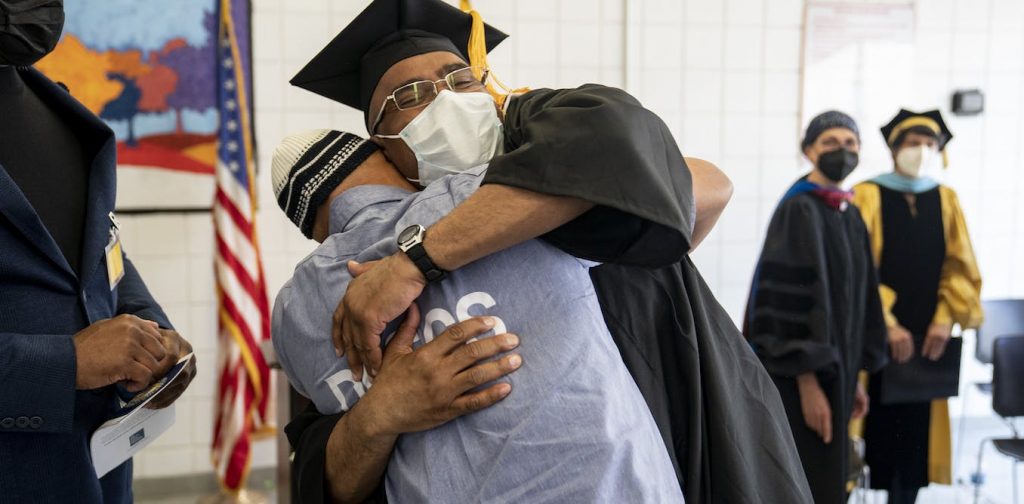Building relationships is key for first-year college students – here are 5 easy ways to meet new friends and mentors

What’s the best advice you can give to a new college student? Connections are everything.
Research for decades has shown that the relationships students cultivate in college – with professors, staff and fellow students – are key to success. Simply put, human connections matter for learning and well-being in college – they also set students up for professional and personal fulfillment after they graduate.
College students confirmed the importance of connections when we interviewed more than 250 students at three dozen colleges and universities throughout the U.S. for our new book, “Connections Are Everything: A College Student’s Guide to Relationship-Rich Education.” The book is free to read online.
Although no two had the same story to tell, what they told was surprisingly similar – and reinforced the research on the power of relationships. What can college students do to harness this power to support their academic success and personal well-being? Here are five steps recommended by students and scholars:
1. Talk to a professor
The quality and frequency of student-faculty interactions play a major role in learning. Approaching a faculty member can feel intimidating. Still, it can be done in simple ways.
Introduce yourself before or after class. Visit during your professor’s in-person or online office hours, which is time set aside for students to meet with their instructor.
You don’t need to connect with every professor right away. Start with one in the first week of the term. You can seek help in or guidance about the class, or you can ask the professor about their professional background.
José Robles, a nursing student at Nevada State College, told us about being surprised at the connections he built with a professor in a required science course that he thought would be “as boring as rocks.” This professor’s teaching inspired him to love geology – and to get excited about learning in general. Jose’s experience is not unusual. A national poll of college graduates found that 60% met their most influential faculty mentor in college during their first year.
 Research shows that the quality of student-professor interactions can help learning. FG Trade/E+ via Getty Images
Research shows that the quality of student-professor interactions can help learning. FG Trade/E+ via Getty Images
2. Make a friend in class
First-year students often feel alone in big introductory courses and in online classes, but those can be opportunities to connect with students who will help you succeed.
Chloe Inskeep, a first-generation student at the University of Iowa, told us about her strategy for making connections even when classes had almost as many students as the population of her hometown: “Lots of students go to class and then they leave or log out as soon as it ends. For me, just staying after a little bit to chat with other people really helps me find people who I have something in common with.”
Research shows that students who study together tend to do better academically than students who study alone. They also tend to be less stressed by their classes.
A guide from the Learning Center at the University of North Carolina at Chapel Hill recommends that students form small groups of committed individuals who meet at least once weekly, whether online or on campus.
3. Use the resources that are there for you
Colleges have many programs and offices to support student learning, development and well-being. These range from writing and tutoring programs to student organizations, counseling centers, and resource hubs for students who identify as LGBTQ+, first-generation, students of color, or who have a disability.
Mirella Cisneros Perez met both welcoming peers and a critical mentor, Dean Sylvia Munoz, after a friend introduced her to the Latinx Student Union at Elon University.
“Whenever I would run into them, I knew they believed in me and wanted me to succeed,” Mirella told us. “The connections my peers guided me to helped me find my place at Elon and changed my whole experience in college for the positive.”
Like Mirella, many students we interviewed said a college staff member was their most important first connection on campus. Even one relationship like this can contribute to your success – a first step in building a “constellation of mentors” that will help you in every dimension of your life.
 Campus jobs and research opportunities can help students combine classroom learning with real-world experiences. FG Trade/E+ via Getty Images
Campus jobs and research opportunities can help students combine classroom learning with real-world experiences. FG Trade/E+ via Getty Images
4. Participate in a ‘relationship accelerator’
“Relationship accelerators” is the term we use to describe campus experiences that help students integrate classroom learning with real-world experiences in powerful ways. These experiences include internships, undergraduate research, writing-intensive seminars, study abroad, and even campus employment.
For example, your campus job supervisor can help you learn valuable new skills and can challenge you to integrate your paid work with your academic learning.
Peta Gaye Dixon, a student at LaGuardia Community College in New York City, told us that her campus job supervisor “sees stuff in me that I don’t see in myself.”
5. Connect with yourself
New students often experience a bit of imposter syndrome – feeling like you might not be as smart or qualified as other students. That’s completely normal, and it’s also something that can be overcome. First, don’t lose sight of who you are and the many strengths you bring with you to college.
If a bump in the road has you feeling anxious – like if you don’t do as well as you hoped on that first quiz – talk to a professor, tutor or friend. We met Joshua Rodriguez, a student at Oakton Community College near Chicago who considered dropping his Calculus 2 class until his professor advised him to read up on imposter syndrome instead of doing the homework one night.
That opened Joshua’s eyes: “That interaction bolstered my confidence to realize that I’m not alone in this, that everyone has these feelings,” he said. “I went from contemplating dropping out to getting tutoring help – and then getting an ‘A’ in the course.”
Joshua ultimately earned a bachelor’s degree in nuclear engineering from Purdue University.
Trusting yourself – and challenging yourself – is vital to your success in school and in life. We promise that if you pursue meaningful relationships, you’ll be setting yourself up well to thrive in college.





